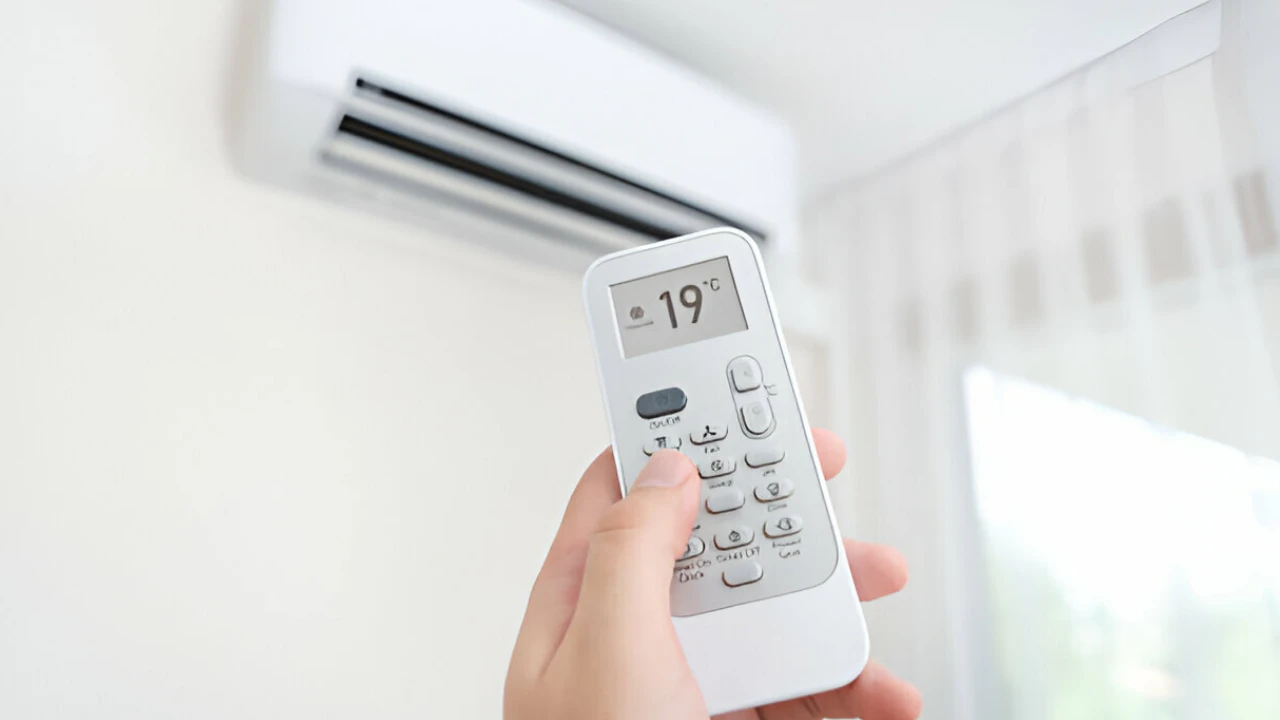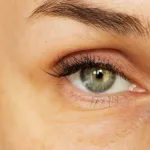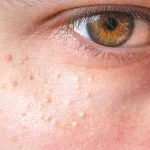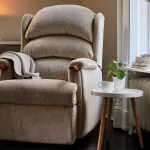Hey there! Ever had a point where you find yourself turning over your pillow to the cold side or kicking off your blankets because the room just doesn’t feel right? I can completely relate to that—getting the right sleep can sometimes be a bit tricky when the temperature is not on your side. So here’s an idea—let’s talk about the thing that can drastically change your nights for good: identifying the best AC temperature for sleep. Unveiling the truth first: most people including myself get the best relaxation and sleep at night at around 65°F (18.3°C). But in case you feel 65°F is not the best option for you yet, do not fret because we are in this together and will figure it out! I want you to imagine if your bedroom could be transformed to a serene and cool cave to simply float away with sleep. Are you willing to join me in the journey?
Why Does Temperature Even Matter for Sleep?

Okay, let’s start with a little “aha” moment: your body isn’t just lying there when you sleep—it’s busy! And temperature plays a huge role in how well it does its job. Ever notice how you feel sleepier when it’s cool, but toss and turn when it’s sticky and hot? That’s because your body naturally cools down as part of its wind-down routine. It’s like your internal thermostat saying, “Time to rest, buddy!” When your room’s too warm, it throws everything off. Too cold, and you’re shivering instead of snoozing. Finding that Goldilocks zone—just right—is the secret to waking up refreshed instead of groggy.
How Your Body Plays the Temperature Game
Here’s the cool part (pun intended): your core temperature drops a bit as bedtime nears. Normally, you’re rocking around 98.6°F (37°C) during the day, but at night, it dips to signal your brain it’s sleep time. A room that’s too hot fights against that natural drop, keeping you awake. Experts—like the folks at Healthline—say keeping your bedroom between 60-67°F (15.6-19.4°C) helps your body do its thing. It’s like giving your system a high-five instead of a wrestling match!
Sleep Quality: It’s More Than Just Shutting Your Eyes
Now, let’s talk about what happens after you fall asleep. Temperature doesn’t just help you nod off—it affects how good your sleep is. You know those mornings when you wake up feeling like a million bucks? That’s partly because you got enough REM sleep—where your brain does its dreaming and memory-sorting magic. The Sleep Foundation says if your room’s too warm (or too chilly), you might miss out on that deep, restorative stuff. Imagine your sleep as a symphony—temperature’s the conductor keeping it all in harmony.
Finding Your Perfect Sleep Temperature

So yes, what’s the ideal temperature for you to not feel cold? Persons in general prefer 65°F (18.3°C) more as the ideal room temperature. However, regarding the fact of the matter, it happens to have you as the example of an unusual person. You don’t know your type-of-person yet. You can be identified as a vintage human blissfully operating in a cozy fire; or a cool cat like me back in the day, not being able to sleep unless my room temperature was at a very intermediary level. The advice is simple: stick to the basics and then adjust as you wish in the best case. Understanding your body is essential, so let’s start there first and then move to the next step.
The Go-To Guide for Adults
Experts—like those at WebMD—agree that 60-67°F is the happy range for adults. And 65°F? It’s like the crowd favorite at a sleep party. It’s cool enough to cozy up your body’s natural cooling but not so cold you’re piling on socks. I tried it myself after a sweaty summer night ruined my sleep, and wow—what a difference! If you’re curious, set your AC there tonight and see how it feels. You might just wake up thinking, “Why didn’t I do this sooner?”
How Age Changes the Game
Here’s a fun twist: your perfect temperature might shift depending on how old you are. Babies and little kids do better around 65-70°F (18.3-21.1°C)—warm enough to keep them safe but not too hot. Meanwhile, my grandma swears by a warmer room, and she’s onto something! Older folks might prefer 68-77°F (20-25°C) because their bodies don’t adjust to cold as easily. A study from the National Council on Aging backs this up—warmer temps helped seniors sleep sounder. So, if you’re setting the AC for someone else, think about their age—it’s a little detail that goes a long way.
A Quick Look: Sleep Temps by Age
| Who’s Sleeping? | Temp Range (°F) | Why It Works |
|---|---|---|
| Adults (like us!) | 60-67 | 65°F hits the bullseye for most |
| Babies & Kids | 65-70 | Keeps them cozy without overheating |
| Older Adults | 68-77 | Extra warmth for better rest |
Making It Your Own
Here’s where you get to play detective. Start at 65°F, but don’t be shy about adjusting. Wake up sweaty? Nudge it down a degree. Teeth chattering? Bump it up. It’s your sleep, your rules! And if you share a bed with someone who’s always hot while you’re always cold (been there!), try separate blankets or a fancy dual-zone mattress. What’s your go-to temp? I’d love to hear—drop it in the comments!
Tips to Nail That Perfect Sleep Temp

So, you’ve got your ideal number—now how do you make it happen? Don’t worry, I’ve got some tricks up my sleeve to turn your bedroom into a sleep paradise. These are super doable, and I’ll bet you’ll feel the difference right away.
Getting Your Thermostat on Board
If you’ve got a smart thermostat, you’re in luck! Set it to hit your target temp—like 65°F—about an hour before you crawl into bed. That way, your room’s ready for you, all cool and inviting. The folks at Cura of Sweden say consistency is huge—wild swings in temp can wake you up. No fancy thermostat? A portable AC or even a fan can work wonders. Trust me, I’ve survived some hot nights with just a cheap fan and a prayer!
Fans, AC, and a Little Air Magic
Speaking of fans, they’re my secret weapon. A ceiling fan or a little tower fan can keep the air moving, making your room feel cooler without breaking the bank. If you’ve got AC, give it some love—clean the filters so it runs smoothly. A well-kept unit can hit that perfect 65°F without huffing and puffing all night. Pair it with a fan for extra oomph, and you’ve got a breeze that’ll lull you right to sleep.
Bedding and PJs: Your Sleep Sidekicks
Let’s talk about what you’re sleeping in. Heavy blankets in summer? No thanks! Switch to cotton or linen sheets—they breathe like a dream and keep you cool. I swapped my old comforter for a light cotton one, and it was a game-changer. Same goes for pajamas—loose, airy stuff is your friend. Sleep Advisor even suggests cooling mattress toppers if you’re a hot sleeper. My friend Lisa tried one and said it was like sleeping on a cloud—cool, comfy, and sweat-free!
Dodging Sleep Temperature Traps
Even with the best plan, it’s easy to trip up. I’ve made some of these mistakes myself (hello, waking up in a puddle of sweat!), so let’s steer clear of them together. Here’s what to watch out for.
Too Hot? That’s a Sleep Thief
Picture this: it’s 75°F in your room, and you’re flopping around like a fish out of water. Sounds miserable, right? Overheating—anything above 70°F (21.1°C)—can make you wake up a bunch, leaving you cranky by morning. Real Simple warns it’s not just annoying—it can mess with your health if it’s a habit. Keep it cool, and you’ll thank yourself when you’re not dragging through the day.
Too Cold? Not So Cozy
But don’t go overboard the other way! Below 60°F (15.6°C), and you might be shivering instead of snoozing. I tried that once—thought I’d be super refreshed—and ended up stiff as a board. Healthline says too cold can tense up your muscles, which is the opposite of relaxed. Aim for that middle ground where you’re comfy, not chilly.
Keep It Steady, Friend
Here’s a sneaky one: temperature rollercoasters. If your AC shuts off mid-night or the weather flips, it can jolt you awake. I learned this the hard way when my old unit kept cycling on and off—talk about a rude wake-up! Use a steady setting or a smart thermostat to lock in your perfect temp. Consistency is your sleep’s best buddy.
The Science Behind the Sweet Spot
Still wondering why 65°F keeps popping up? Let’s peek at the science—it’s pretty cool (yep, I went there again!). Knowing the “why” might just convince you to tweak your AC tonight.
What the Research Says
Studies—like one from Healthline—show 65°F works for most adults because it matches our body’s natural cooling. But older folks? They might need 68-77°F for better sleep, while kids like it a bit warmer too. The Sleep Foundation agrees—it’s all about syncing with your body’s rhythm. Pretty neat how science backs up what feels good, huh?
How Temp Shapes Your Sleep Stages
Here’s the deep dive: temperature tweaks your sleep “architecture”—fancy term for how your sleep stages flow. Cooler temps boost deep sleep, where your body heals and recharges. Too warm, and you’re stuck in lighter sleep, missing out on the good stuff. Cura of Sweden says it’s like tuning an instrument—get it right, and your sleep sings. Who knew a little AC could do so much?
Let’s Wrap This Up!
So, where does that leave us? The best AC temperature for sleep is around 65°F for most, but you’ve got wiggle room to make it yours. Maybe you’ll land at 62°F, or maybe 68°F feels like heaven—whatever works, I’m rooting for you! Your bedroom should be your escape, a place where you melt into the sheets and wake up ready to tackle anything. Give these tips a whirl tonight—play with your AC, swap out those heavy blankets, and see what happens. Found your perfect temp? Tell me about it in the comments—I’m dying to know! Sleep tight, friend—you’ve got this!





















Leave a Reply
You must be logged in to post a comment.